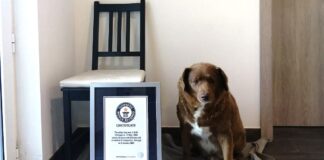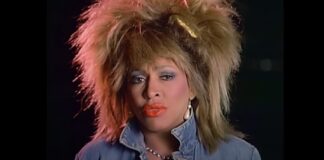OPINION | This article contains opinion. This site is licensed to publish this content.
Sean Hepburn Ferrer and his wife Karin wrote a kids books titled, “Little Audrey’s Daydream,” according to Fox News.
Sean Hepburn Ferrer spoke with Fox News in an interview:
Fox News: What compelled you to release a children’s book inspired by your mother now?
Sean Hepburn Ferrer: The idea for the book actually came in 2005. It was really a letter that I wrote for my children… I remember during the last few weeks of my mother’s life, I would sit in a chair next to her and she would wake up in the middle of the night.
We would then talk about the things that mattered… But for the past 15 years, I’ve received numerous letters from young teens and tweens who’ve been captivated by my mother. It’s been a delightful experience for me. I wanted to do something different in terms of telling her story to a new young generation. This book is really for the child in all of us.
Fox News: This children’s book does deal with a heavy subject matter. It describes how your mother, during World War II, ate tulip bulbs for survival and stayed in bed to preserve her calories.
Hepburn Ferrer: Tulip bulbs, dog cookies and green pea bread. Can you imagine?
Fox News: What do you think kept your mother going during such a horrific time in history?
Hepburn Ferrer: I think that’s exactly the whole point of this book. She dreamed about ballet. She dreamed about what would happen when the war was over — when the war would be over. It was her dreams that kept her going. She would stay in bed because there was little to eat and no heating. So you preserved your calories. She would then read the few books she had, these fairy tales. She would dream of what her life would be like after the war.
Fox News: Growing up, when did you realize your mother was different from other moms?
Hepburn Ferrer: You know, we weren’t a Hollywood family. I didn’t grow up in a home with screening rooms and my mother didn’t behave like a movie star. I later realized she was different when there would be paparazzi while she was picking me up from school.
So I guess that occurred when we moved to Rome. But when we were living in Switzerland, I remember there were two black and white TV channels. Once in a while, people would say, “Look, your mom’s on TV.” But as a young kid, you don’t really worry about those things so much.
I remember in the months [before her death] we received thousands of letters — enough to fill 25 lawn and leaf trash bags — just filled with get well notes, books — you name it. And on the day of her funeral, it was estimated that there were over 25,000 people lining the streets of this little village in Switzerland.
As far as you could see, there were cars parked everywhere filled with people wanting to pay their respects. It was like a rock concert. We all grew [up] thinking it was nice to have a mom who also happened to be an actress. But the realization of how much she impacted the world came much later.
I remember [after she died] I opened up the old projector and hung a sheet in the attic and watched her films at night. That full realization came after she passed away. Not only did she represent inner and outer beauty and elegance, but all the work she did at the end of her life touched so many people. She created this extraordinary legacy.
Fox News: In the book, it described how Audrey chose to raise her children in Switzerland because it was a neutral country. How would you describe her life there?
Hepburn Ferrer: She lived in this lovely farmhouse that was built in the second half of the 18th century that belonged to the same family. It had big orchards in the front of cherries and apricots — all these fruit trees.
She lived a normal life. She would go to town and shop at markets. People knew who she was. But they left her alone and she was able to live a normal life. In Rome, it was different because of the paparazzi and the press, which is why we didn’t last long living there. But in Switzerland, she had a really quiet life.
She would get up in the mornings, make breakfast and then take her dogs out for long walks. Then she would do her work on a big dining room table and write her speeches for UNICEF. I’ve kept them all — they were all handwritten. She was fortunate to have a housekeeper and a gardener for the garden because it was a big piece of property.
However, she never behaved like a movie star. She was a normal person who lived a simple life. She watched her spending like anyone else. We had a good education, but we didn’t walk away feeling better than anybody else. That was always important to her.
Fox News: Looking back, what was one thing that your mother said about her childhood that really stood out to you, especially when creating this book?
Hepburn Ferrer: I think it’s something that sort of mirrors what she did in her work for UNICEF. She said, “It’s not just hunger of the body, it’s the hunger of the soul.” She believed a child is not just entitled to a full belly and good education. They were also entitled to love and affection.
I think she felt she somehow lost a part of her childhood because of the war and the divorce of her parents. That’s something she talked about that really stuck with me. A child deserves love, affection, the chance to just play and do nothing, to sit under a tree, read a book, dream and not have a care in the world.
Fox News: What’s one of your favorite memories involving your mother?
Hepburn Ferrer: Anytime I made her laugh. It was easy because first, it was this divorce with my dad. And then there was [my brother] Luca’s father, who was a great stepdad, so much fun, but a terrible husband… So whenever I would make her laugh, she would really laugh from her stomach. It’s one of the greatest things you can take from any relationship if you can make someone laugh and give them that moment of sunshine.
But there are many moments I think about. I think about when she drove me to the airport and I left to do my first job. I was walking through security and when I turned around, there were tears coming down her face. As a parent and having been through it, I now understand *laughs*. But I take great comfort in those moments when I simply made her laugh.
Fox News: Do you think she got to relive her childhood in raising you?
Hepburn Ferrer: I think she did. She would dress me, make me breakfast, help me do my homework. In the mornings when I was still sleepy, she would wake me up and make sure I learned what I needed to know for the day — it’s something that actors do.
I learned some very valuable lessons on how to memorize things. And you know, I came late. She lost a couple of pregnancies before me. It was sort of this great healing for her to finally have a child. She lost my little sister before me, almost six months into the pregnancy. It was very, very hard for her. She said it was one of the hardest things she ever had to go through. Being a mother brought her great joy in life. Whenever you see a photograph of her with her children — or any child for that matter — you can immediately feel her joy, even today.
Fox News: What do you hope audiences will ultimately get from this book?
Hepburn Ferrer: What a remarkable person she was. I want to continue telling her story. We want to continue the work that she cared the most about. She was very proud of the fact that she was able to contribute and do something, especially for children.
I don’t think we can ever fill those shoes, but we’re noticing little footsteps in telling her story. I think this book is really a message of hope. A young girl during the war read fairy tales and dreamed of a better life. And when she finally achieved that, she gave back to the world. Somehow magically, the story being told is that there’s healing in hope.





